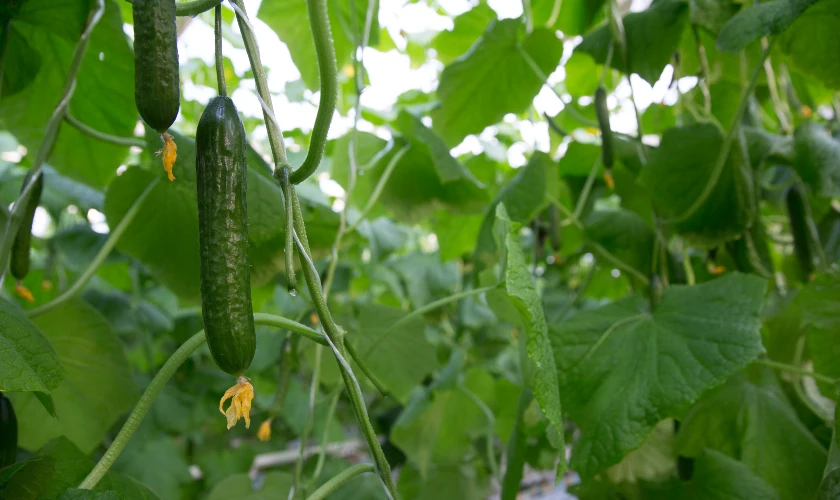The Netherlands
September 4, 2024
Celebrating nearly a century of cucumber activity
Cucumber was one of the first crops Rijk Zwaan focused on, leading to many significant milestones over the years. Rijk Zwaan has pioneered important advancements in breeding, followed by changes in production methods and category management. Various Rijk Zwaan employees have a lot of knowledge about the developments the company has experienced over the years. Therefore, for this series of three articles, we asked Eric Bal (Head of Breeding Cucumber), Marcel van Koppen (Crop Co-ordinator Cucumber) and Heleen van Rijn – Wassenaar (Specialist Marketing) two important questions: How do they view the milestones of the past century? And what do they expect moving forward? Join us as we explore the past, present and future of cucumbers! In this first article, we concentrate on breeding with Eric.
The increasing diversity in breeding
Despite being the most famous cucumber, the Long English cucumber is of course no longer the only type in the cucumber category. According to Eric, Rijk Zwaan has been involved in many important innovations over the past century. One of them was the introduction of the midi cucumber Mewa RZ. “Initially, this variety was not a good fit for traditional production. However, it suits high-wire production perfectly. The growth potential of Mewa RZ paid off in high production volumes,” he says.

Besides Long English and midi cucumbers, Rijk Zwaan created smaller types, such as mini and snack cucumbers. “Another important development was the launch of mini cucumbers for the heated segment. This product was already popular in the Middle East, and interest in it has now expanded to new markets, such as Canada, the US and Australia,” Eric explains.
In the future, the cucumber sector will increasingly need to address challenges related to labour, climate change, meeting the demand for resistant and sustainable varieties, and the application of modern techniques. “We will face a reduction in the availability of employees with the required knowledge. I believe the main solution lies in continuing with automation and robotisation, especially in the area of harvesting,” Eric states.
“With the introduction of smaller cucumber types, we have complicated things for ourselves,” he adds. “These smaller types, such as midi, mini and snack cucumbers, require more inputs per kilogram. We could expand further in our current markets with a harvest robot, allowing us to maintain our cultivation areas, as it remains a fresh product.”
In addition to this, Eric expects a further increase in disease pressure and stricter governmental regulations, both of which will create a larger need for resistant varieties. Varieties with more resistances reduce or even eliminate the need for pesticides. This will result in the availability of vegetables with lower residues, and will make it easier for growers to avoid exceeding the Maximum Residue Limit (MRL).
“We will continue to focus on breeding resistant varieties, partly inspired by our thinking that led to the Blue Leaf concept. This means asking ourselves what Mother Nature offers, in which case we look at what is available in the gene bank, or how can the further development of cucumber rootstock, for instance, contribute to resistance, growth potential and abiotic stress tolerance?” concludes Eric.
These are just some examples of how Rijk Zwaan is addressing current and future challenges. Next week, look out for our second article, in which we interview Crop Co-ordinator Marcel van Koppen about the transitions in cucumber production methods.